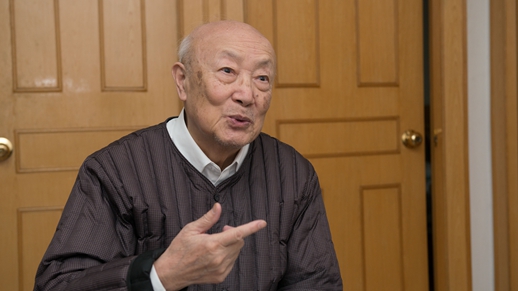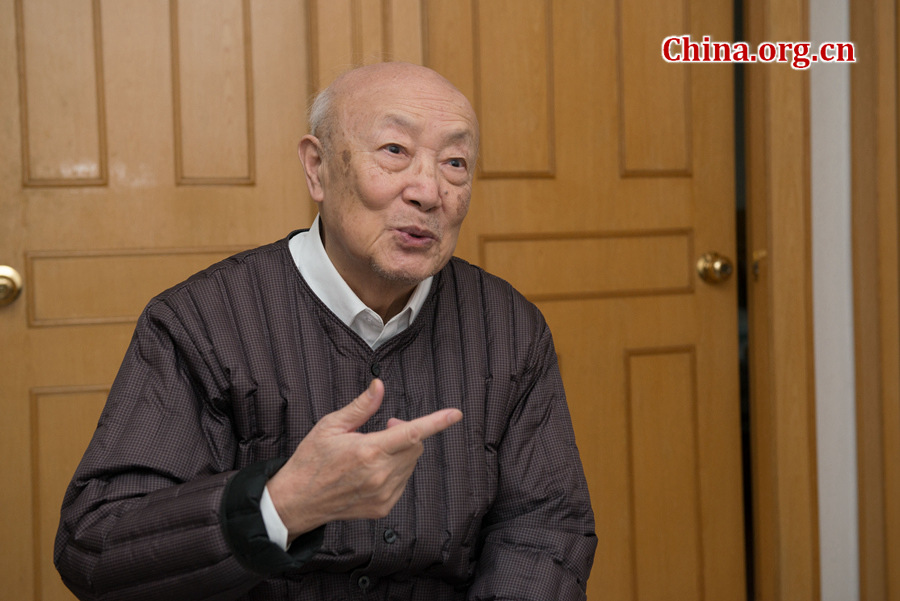Tu An: Portrait of a poet and translator
- By Li Xiao, Chen Boyuan
 0 Comment(s)
0 Comment(s) Print
Print E-mail China.org.cn, May 31, 2017
E-mail China.org.cn, May 31, 2017
| On April 19, 2017, the 94-year-old Mr. Tu An talks with a journalist from China.org.cn in his apartment. [Photo by Chen Boyuan/China.org.cn] |
Tu recites ancient poems in a "Changzhou chant" that originated from the "Wu chant" during the Spring and Autumn (770-476 BC) and Warring States (475-221 BC) periods. However, recording machine hadn't been then, so people relied on word-of-mouth transmission and biological memory to record the tones. Speaking of chanting, there's one everywhere, including Beijing. However, so far, only Changzhou chant has been recognized as a national intangible cultural heritage (ICH) by the State Council. A group of people worked to make this happen: Zhao Yuanren, late linguistic guru in Changzhou who wrote abundantly on the local chant; Qin Dexiang, a music teacher in Changzhou who has long studied the chant and authored a collection of papers; and others who cared enough to submit applications to the provincial government for its preservation. They didn't stop at that, sending applications to the State Council. In the end, Changzhou chant was officially approved as a national ICH. In the early 21st century, Changzhou Daily printed the news and named Zhao Yuanren, Zhou Youguang and Tu An as representatives passing on to future generations this precious gift. Now, coaching sessions of Changzhou chant can be found in many middle and elementary schools, which will ensure the skill remains very much alive through many generations. To do the Changzhou chant, you have to speak in the Changzhou dialect, as it won't be authentic in Mandarin. Tu was home-educated in Changzhou chant, coached by his mother who was taught by her uncle Tu Ji (brother of Tu An's grandfather, whom he called great uncle). In the early days of the Republic of China, Cai Yuanpei hired Tu Ji to work as the editor-in-chief at the National History Institute in Beijing.
Among the Chinese ancient poets, Tu An's favorite is Du Fu (712-770). Du had been through the An-Shi Rebellion during the Tang Dynasty (618-907), and witnessed the era of a divided country and destitute lives. His poems largely focused on the miseries of a broken country and families, imbued with a deep love for his nation and people. Tu said, "I was born into the fights of warlords, and then the war against Japanese invaders, and the civil war between the Kuomintang and Communist Party, thus the times reflected in Du's poems are much like my own times, so I can relate to him. That's why he's my favorite." In the seminars in which he has participated, Tu is often asked to recite the ancient poems, and he always chose "Upon the News that State Troops Have Taken back Henan and Hebei" to share his vision of a united country.






Go to Forum >>0 Comment(s)